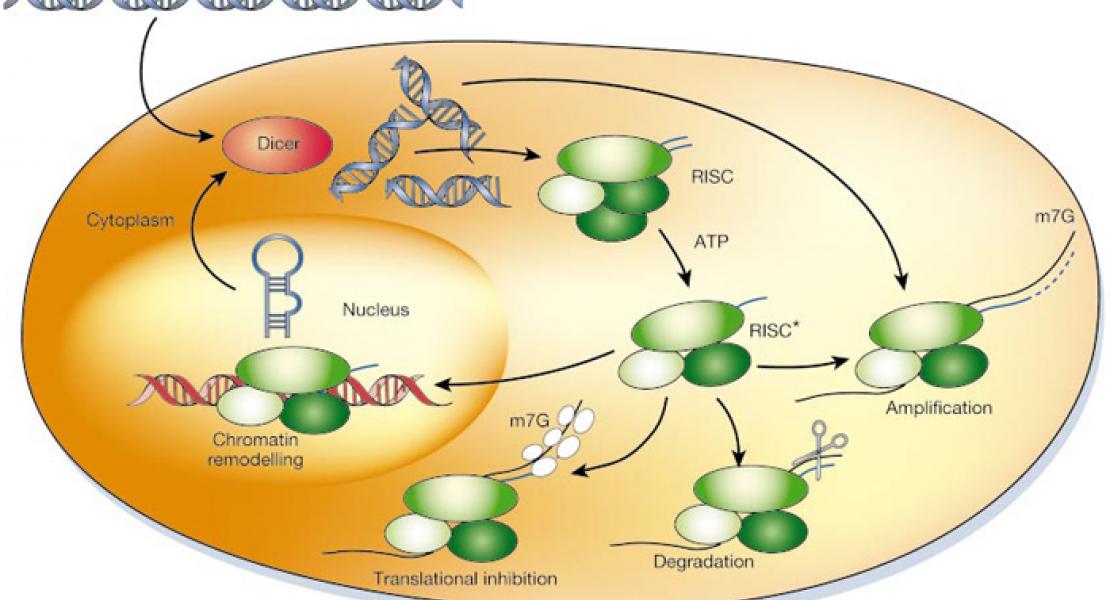Thermodynamic stability of small hairpin RNAs highly influences the loading process of different mammalian Argonautes

Abstract
MicroRNAs and siRNAs interact with target sequences in mRNAs, inducing cleavage- and non-cleavage–based gene repression through the RNA-induced silencing complex (RISC) that consists of one of four mammalian Argonaute proteins, Ago1–Ago4. The process of how Dicer substrate small hairpin RNAs (shRNAs) are loaded into different mammalian Agos in vivo is not well established. Here we report that shRNAs are loaded into mammalian Agos in two stepwise processes, physical association and activation, with the latter being the rate-limiting step with noncleaving RISC. We establish that, although RNA duplexes processed from shRNAs bind to Agos in cells with similar affinity, the degree by which the complexes are activated (coupled with the removal of the passenger strand) correlates with the thermodynamic instability of RNA duplexes being loaded rather than the structure of the RNA, as was previously demonstrated in Drosophila. Interestingly, Ago loading of siRNAs is less sensitive to thermostability than that of their shRNA equivalents. These results may have important implications for the future design of RNAi-based therapeutics.
